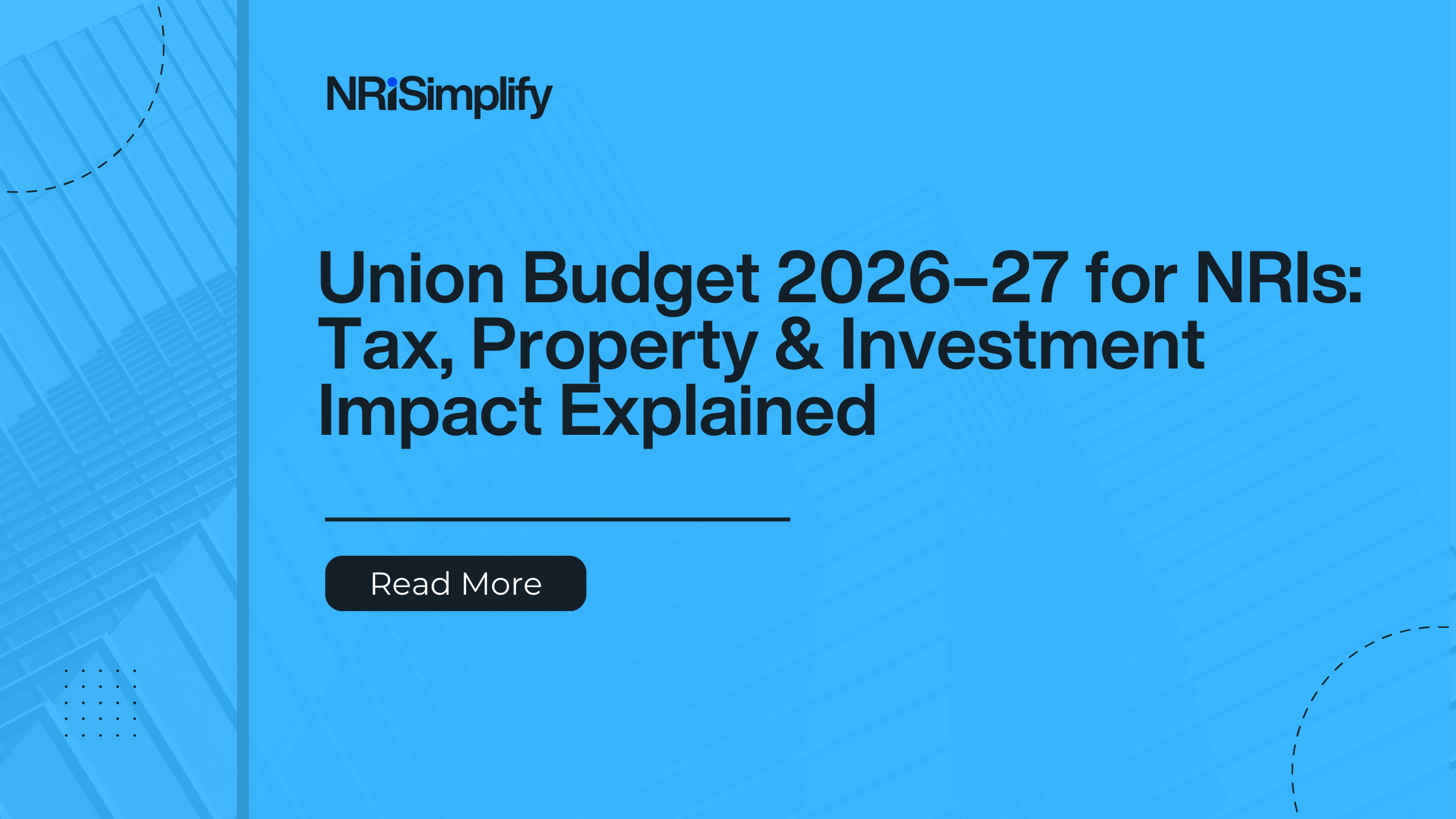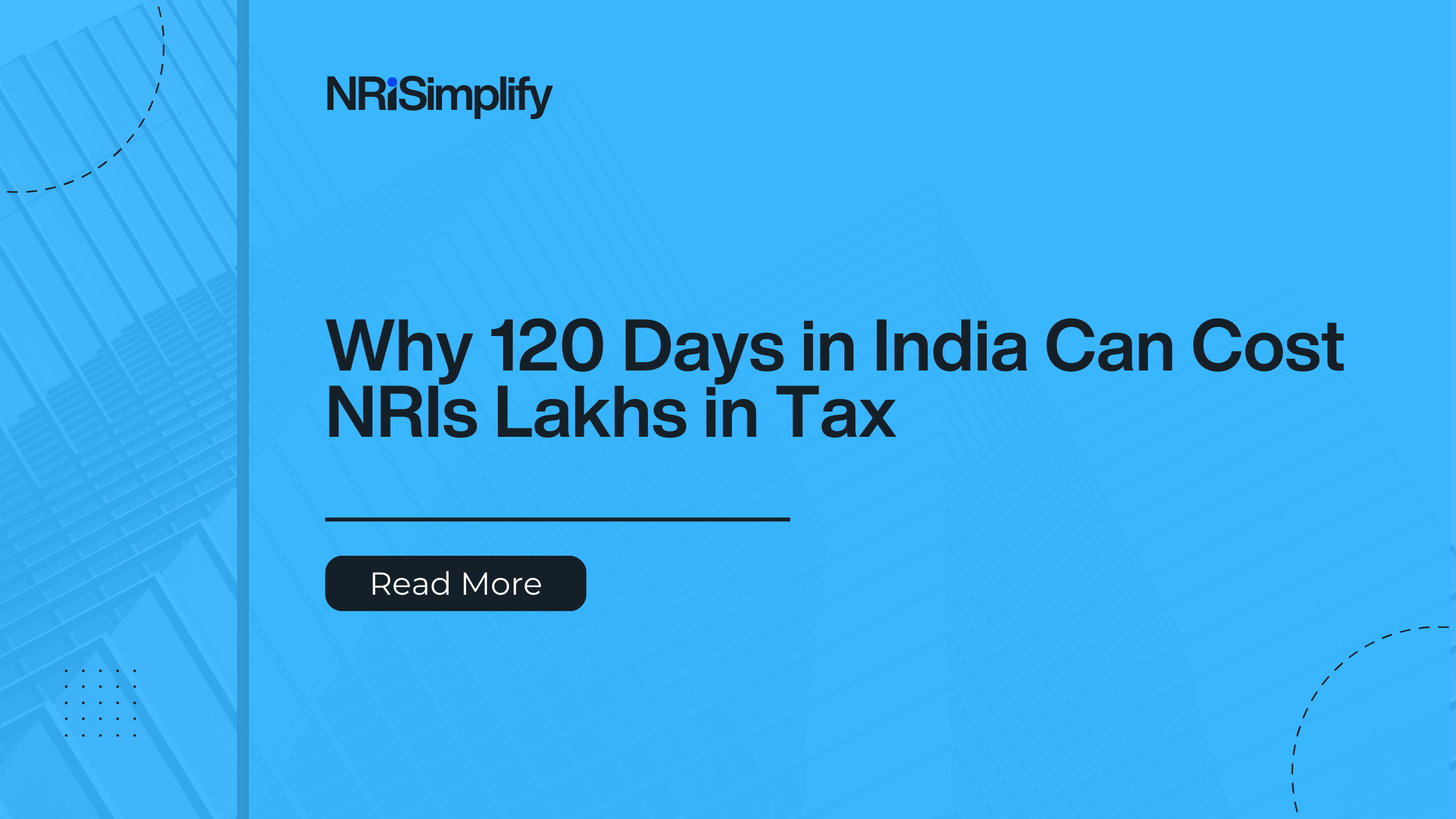India continues to be a prime destination for Non-Resident Indians (NRIs) seeking to capitalize on the country’s vibrant and rapidly expanding economy. However, the challenges for NRIs investing in India can often feel overwhelming. From updating KYC details to navigating the complexities of dual taxation and understanding regulatory constraints, NRIs can face numerous obstacles. In this blog, NRI Simplify highlights these key challenges and offers actionable solutions to simplify the investment process.
Key Challenges Faced by NRIs
1. Complex KYC Updates
Transitioning from resident to non-resident status requires NRIs to update KYC (Know Your Customer) details across various financial platforms, including bank accounts and investment portfolios. This involves:
- Converting resident accounts to NRO/NRE accounts.
- Updating PAN and Aadhaar details.
- Submitting extensive documentation, often requiring notarization or attestation, which can be time-consuming and costly, especially for NRIs residing abroad.
Solution:
Partner with professionals who specialize in NRI financial services to streamline the KYC update process and assist with setting up NRE/NRO accounts at prominent Indian banks.
2. Dual Taxation Compliance
One of the most significant hurdles for NRIs is the dual taxation system—being liable for taxes in both India and their country of residence. Some key tax implications include:
- Capital Gains Tax: NRIs face tax on short-term capital gains (up to 30%) and long-term gains (12.5% or 20%, depending on the property registration date).
- Tax Deducted at Source (TDS): Higher TDS rates apply to NRIs, even for rental income.
- Double Taxation Avoidance Agreement (DTAA): While DTAA provides relief, filing for tax credits or refunds can be cumbersome.
Solution:
Educate yourself about DTAA benefits and consult with cross-border tax experts to minimize tax liabilities. You can also refer to our comprehensive blog on Double Taxation Avoidance Benefits for NRIs for further insights.
3. Unclear Investment Processes
Unlike resident Indians, NRIs face additional hurdles when investing in mutual funds, direct equities, or real estate. These hurdles include:
- Opening a Portfolio Investment Scheme (PIS) account for equity investments.
- Limitations on mutual funds, especially in countries like the USA and Canada due to regulatory restrictions.
- Restrictions on purchasing agricultural land unless specific permissions are obtained.
Solution:
Work with financial advisors who specialize in NRI-specific investment regulations to simplify the process and ensure compliance with Indian laws.
4. Difficulty in Finding Cross-Border Financial Advice
NRIs often struggle to find financial advisors who are knowledgeable about both Indian and international regulations. This lack of expertise can lead to:
- Poor investment decisions.
- Non-compliance with tax and regulatory norms.
- Missed opportunities for tax optimization and portfolio diversification.
Solution:
Choose advisors or firms with a proven track record in cross-border tax planning and managing NRI investments.
Actionable Solutions for NRIs
Update Your Accounts
- Convert all savings accounts to NRE or NRO accounts.
- Ensure your PAN details reflect your NRI status.
Leverage Technology
- Use online platforms for documentation submission and KYC updates.
Understand Tax Implications
- Educate yourself on Indian tax laws, leveraging exemptions like:
- Section 54: Reinvesting capital gains in residential properties.
- Section 54EC: Investing in government-backed bonds.
- For more details, refer to our Tax Strategies for NRIs Selling Property in India.
Seek Professional Guidance
- Partner with financial advisors experienced in cross-border investments.
- Choose legal experts for property verification and compliance.
Tips for NRIs Investing in India
- Start with Goals: Define your financial objectives and risk appetite before choosing investment avenues.
- Diversify: Explore options like mutual funds, REITs, and real estate to spread risks.
- Stay Updated: Regularly monitor regulatory changes and market trends in India.
- Plan for Repatriation: Ensure investments comply with RBI rules for repatriating funds.
Conclusion
Investing in India offers NRIs significant growth opportunities, but the challenges for NRIs investing in India are numerous. From regulatory complexities to dual taxation, NRIs must navigate multiple hurdles to make informed investment decisions. However, with the right guidance, technology, and professional assistance, these obstacles can be overcome.
At NRI Simplify, we specialize in assisting NRIs with all aspects of their financial journey, from investment planning to compliance and tax optimization. Contact us to simplify your investment experience and maximize returns.
Frequently Asked Questions (FAQs)
Q1: Why do NRIs face challenges when investing in India?
NRIs face challenges such as complex KYC updates, dual taxation compliance, restrictions on certain investments, and the difficulty of finding qualified cross-border financial advisors.
Q2: How can NRIs simplify the investment process in India?
NRIs can simplify the process by working with financial advisors who specialize in NRI-specific regulations, using digital platforms for updates, and understanding tax implications through proper planning.
Q3: What are the tax implications of selling property in India for NRIs?
NRIs selling property in India may face capital gains tax based on the holding period of the property. However, they can reduce this liability by utilizing exemptions such as Section 54 for reinvestment.
Q4: Can NRIs invest in agricultural land in India?
NRIs are generally not allowed to purchase agricultural land in India unless specific permissions are granted by the government.
Q5: What is the best way for NRIs to manage taxes on their investments in India?
Consult with cross-border tax experts, utilize DTAA benefits, and ensure compliance with Indian tax laws to optimize tax liabilities and maximize returns on investments.






